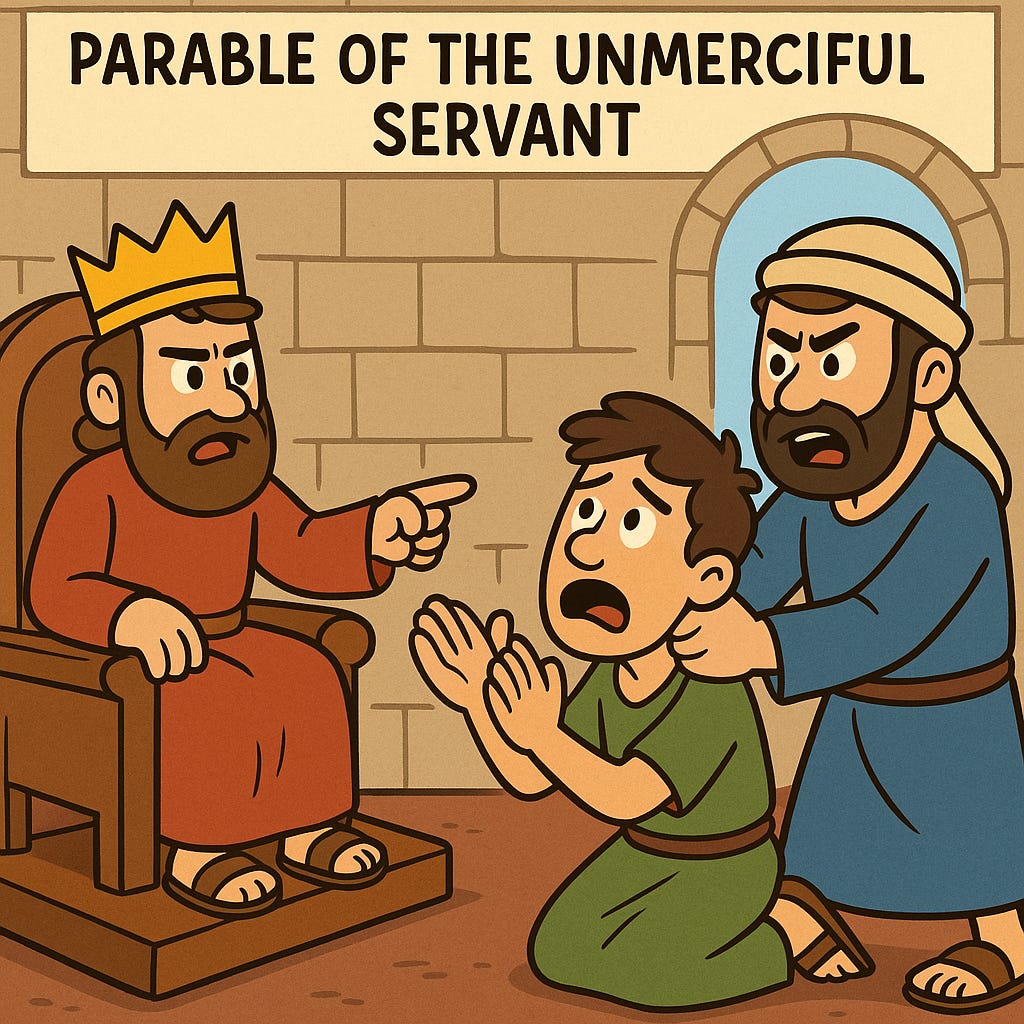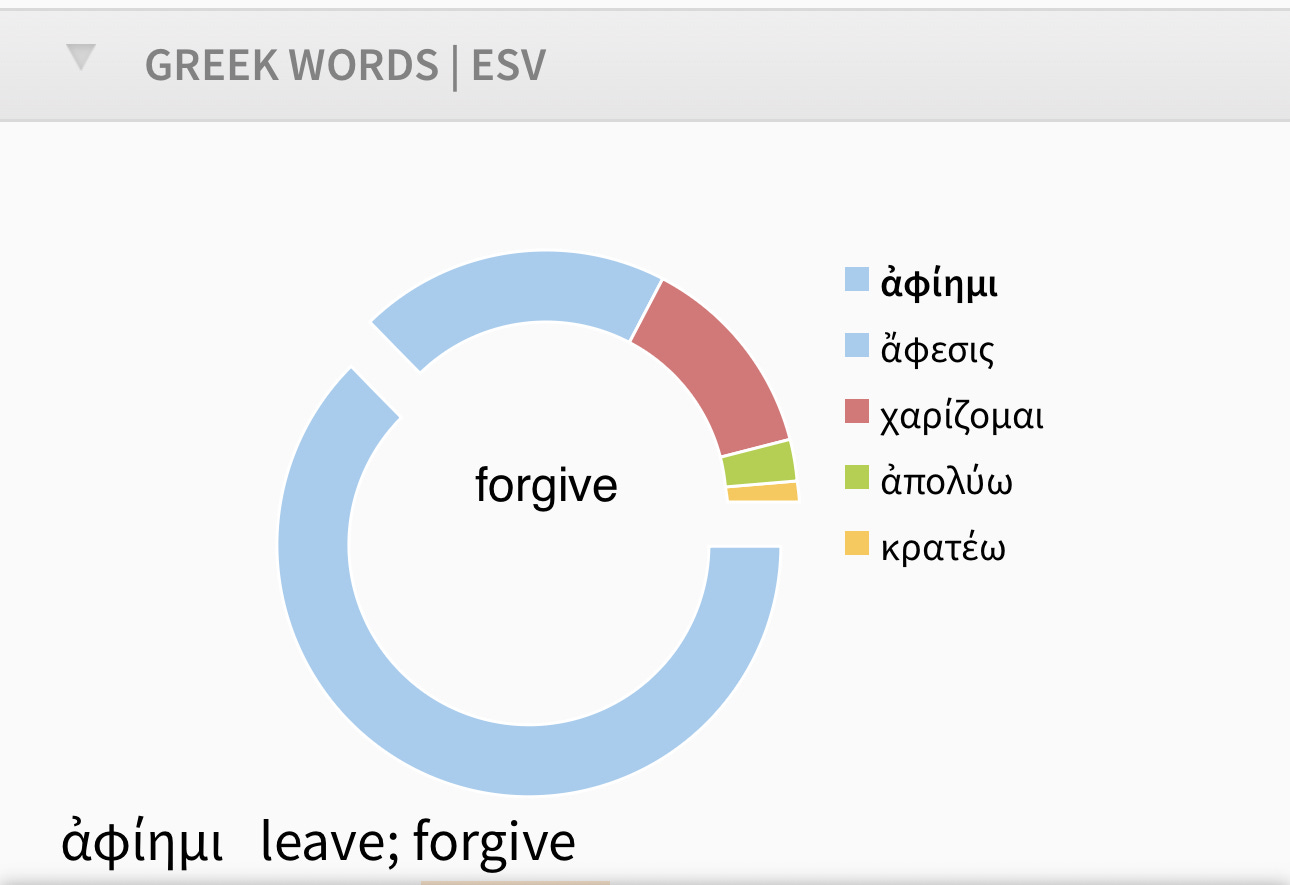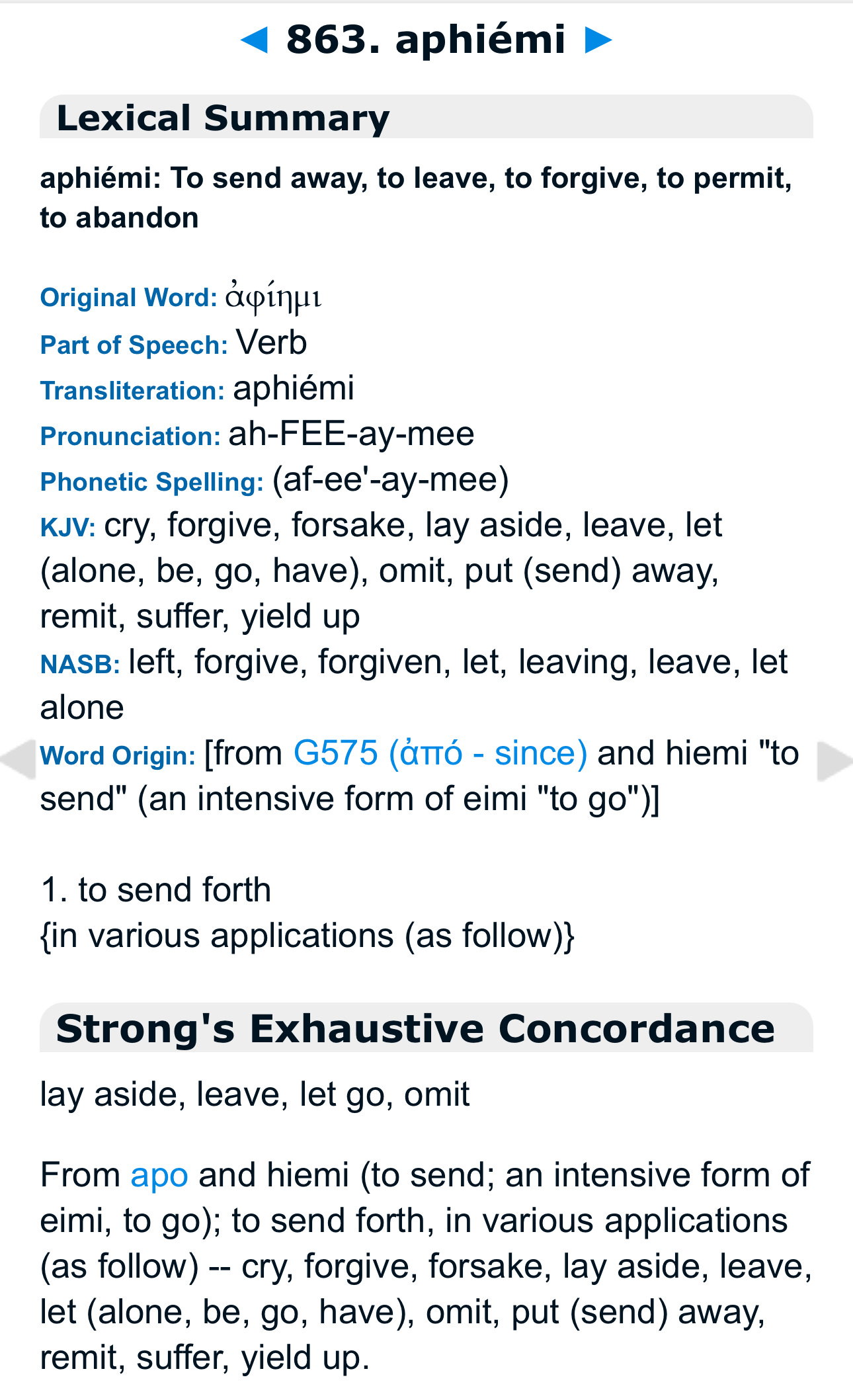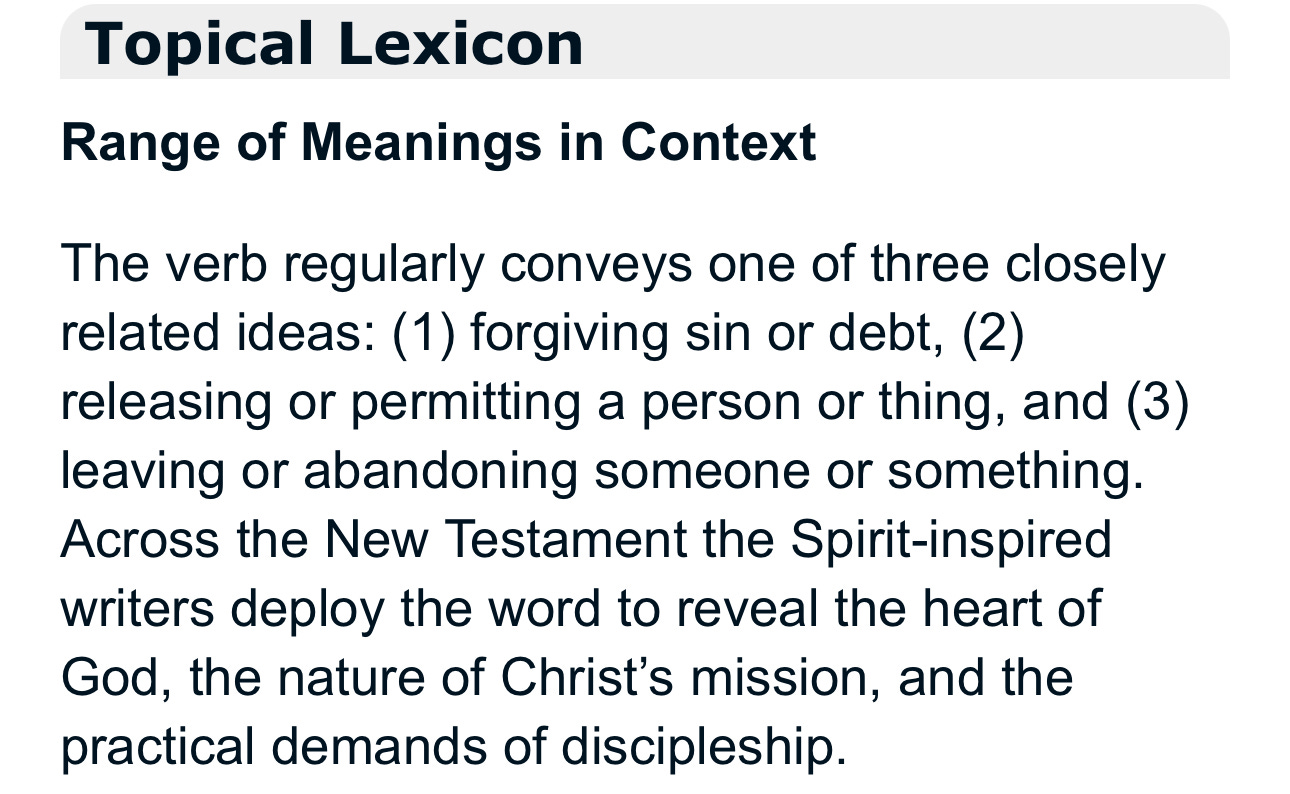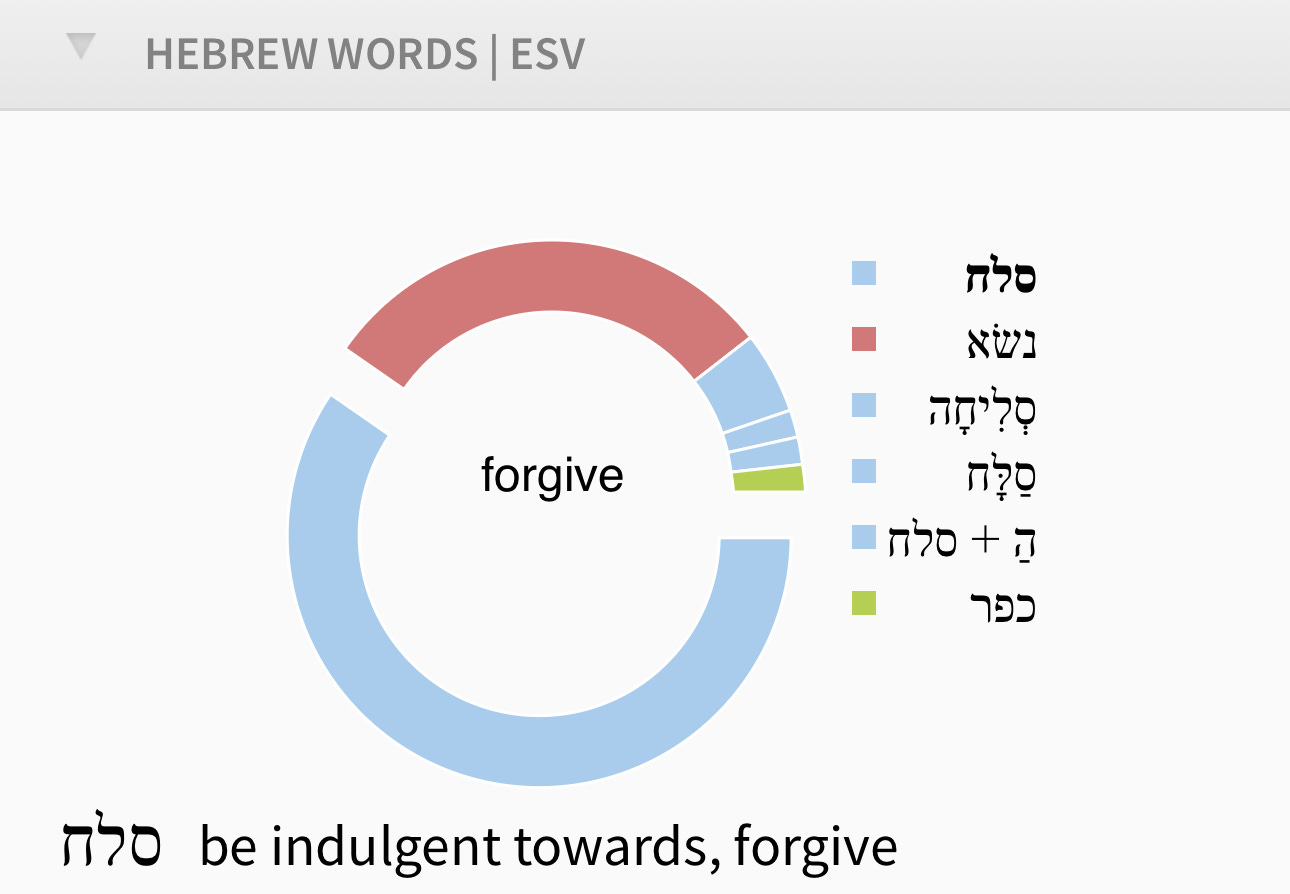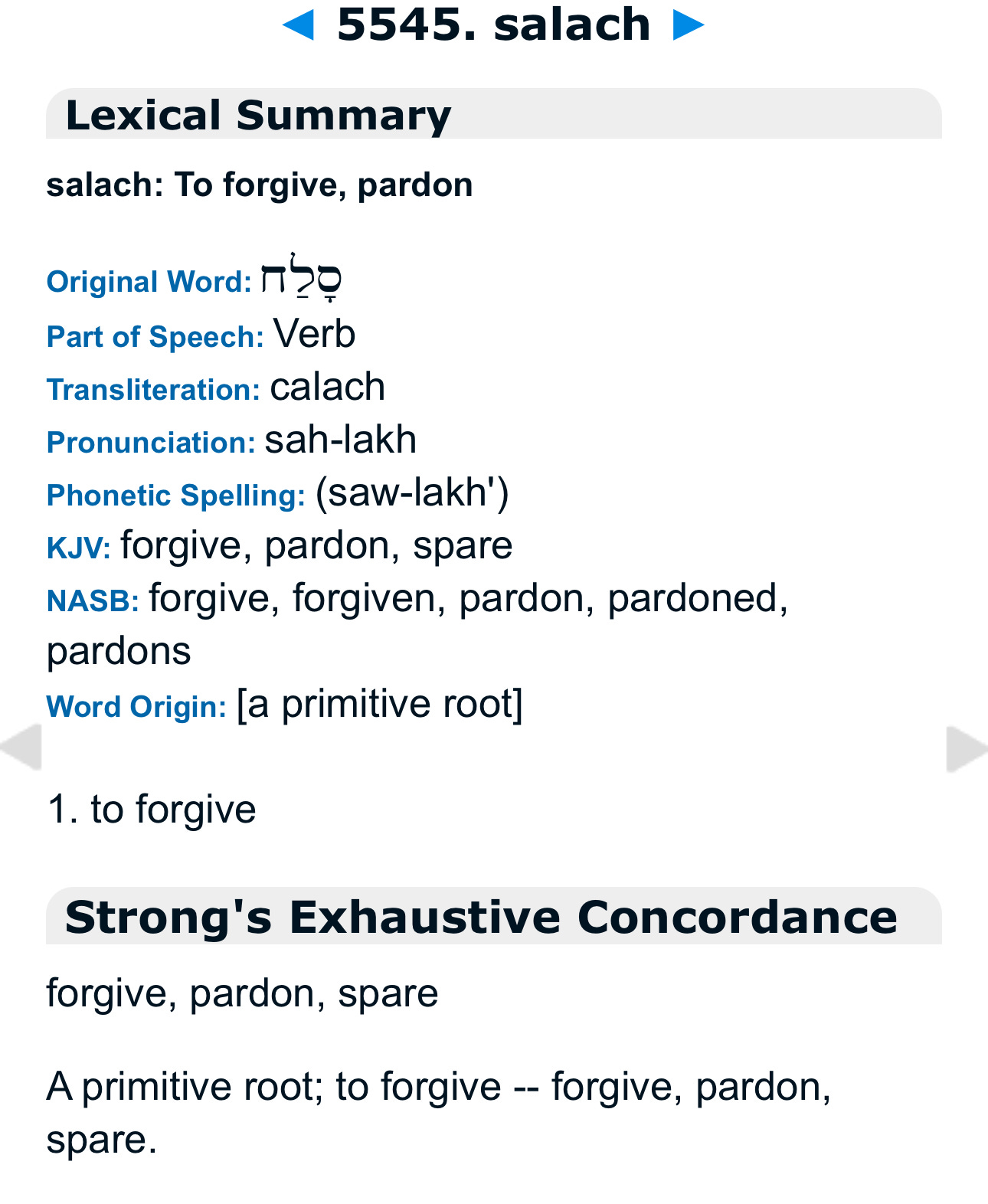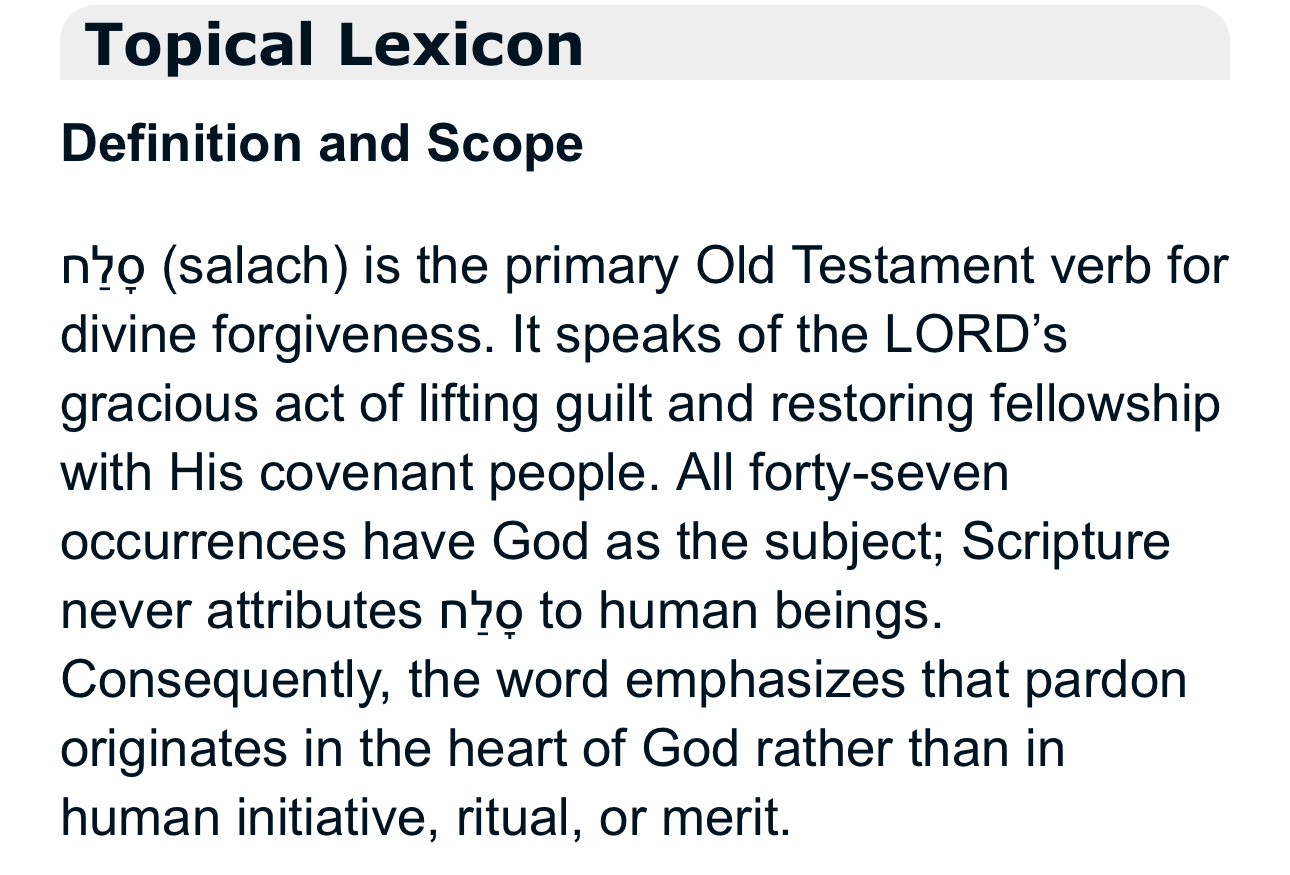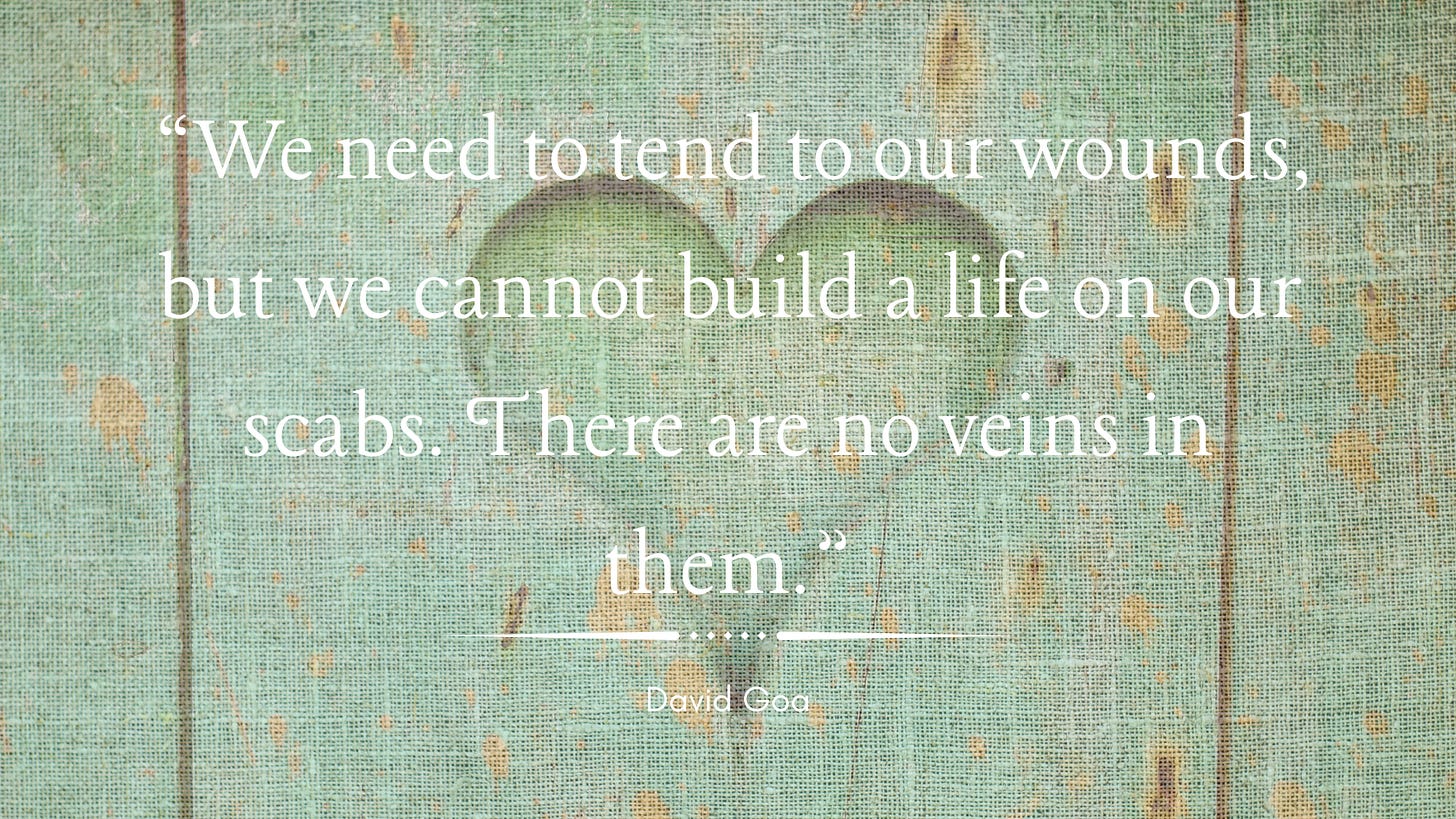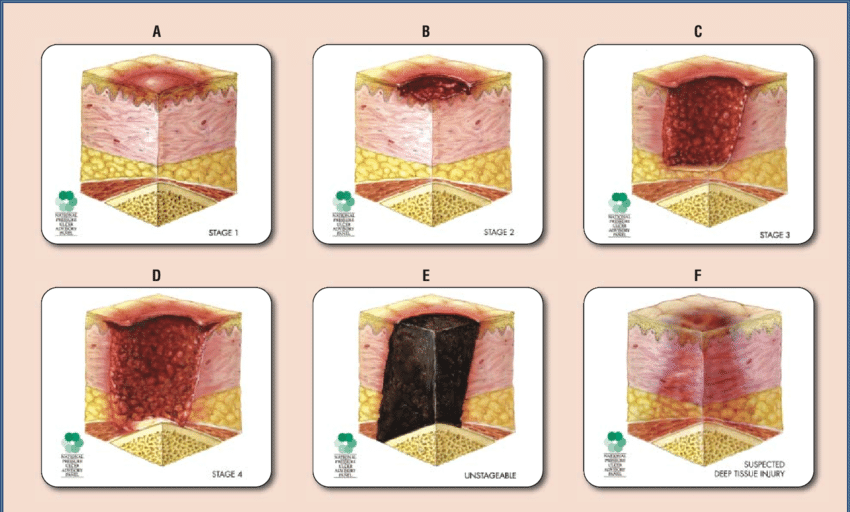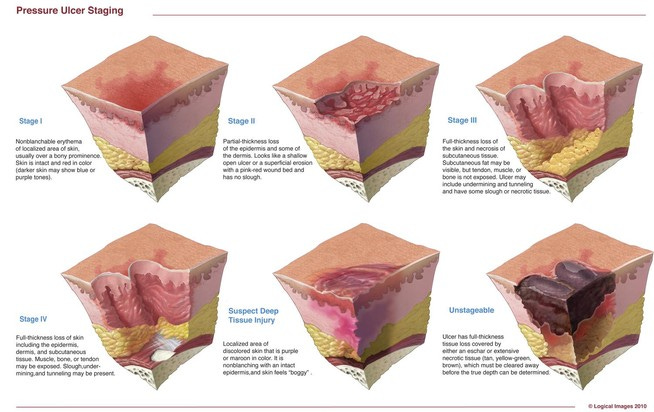Forgiveness, How Much or Where From?
the week in review for the week ending July 27th
This week Pastor Scott delivered his sermon on forgiveness based on the parable in Matthew 18:21-35.
Matthew 18:21-35 :: The Parable of the Unmerciful Servant
Then Peter came to Jesus and asked, “Lord, how many times shall I forgive my brother or sister who sins against me? Up to seven times?”
22 Jesus answered, “I tell you, not seven times, but seventy-seven times.[g]
23 “Therefore, the kingdom of heaven is like a king who wanted to settle accounts with his servants.24 As he began the settlement, a man who owed him ten thousand bags of gold[h] was brought to him. 25 Since he was not able to pay, the master ordered that he and his wife and his children and all that he had be sold to repay the debt.
26 “At this the servant fell on his knees before him.‘Be patient with me,’ he begged, ‘and I will pay back everything.’ 27 The servant’s master took pity on him, canceled the debt and let him go.
28 “But when that servant went out, he found one of his fellow servants who owed him a hundred silver coins.[i] He grabbed him and began to choke him. ‘Pay back what you owe me!’ he demanded.
29 “His fellow servant fell to his knees and begged him, ‘Be patient with me, and I will pay it back.’
30 “But he refused. Instead, he went off and had the man thrown into prison until he could pay the debt.31 When the other servants saw what had happened, they were outraged and went and told their master everything that had happened.
32 “Then the master called the servant in. ‘You wicked servant,’ he said, ‘I canceled all that debt of yours because you begged me to. 33 Shouldn’t you have had mercy on your fellow servant just as I had on you?’ 34 In anger his master handed him over to the jailers to be tortured, until he should pay back all he owed.
35 “This is how my heavenly Father will treat each of you unless you forgive your brother or sister from your heart.”
What’s so important about forgiveness? Why do we forgive? What is forgiveness? What does forgiveness mean? I have provided the word etymology below, for English, Greek, Hebrew.
forgive(v.)
Middle English foryeven, from Old English forgiefan "give, grant, allow; remit (a debt), pardon (an offense)," also "give up" and "give in marriage" (past tense forgeaf, past participle forgifen); from for-, here probably "completely," + giefan "to give" (from PIE root *ghabh- "to give or receive"). — Etymonline
Forgiveness comes from G-d, that’s salach סלח, it originates in His heart. We could imagine that mercy lines the heart of g-d, and that grace flows to us from the chambers of g-d’s heart through Jesus.
Forgiveness comes from the Divine and not humans. We have the capacity to forgive because G-d forgives us.
We forgive to preserve the peace of our psyche and the integrity of our soul. We forgive because it’s a gift freely given to us and we can only fully partake in the blessing of that gift from the Divine by paying it forward. G-d doesn’t treat us as our offences deserve, and that’s a very good thing! When we ourselves forgive, we commit to letting it go—the Greek work used in line 21, aphiémi, refers to letting go or loosing. Forgiveness means release the toxic hurt: it means put down the poisonous baggage chaining you down to misery.
In Sunday’s Bible reading Peter asked Jesus how often must he forgive. Jesus answered the question with a parable. We heard the story of a servant who received forgiveness for his debt and then went and, rather than showing the mercy of his master towards his debtor, had him thrown in prison.
How often do we behave this way, reader? How often do we forget all the times others forgave us? How often do we forget all the times G-d forgives us, despite our undeservedness?
I think of forgiveness as a kind of surrender. Forgiveness demands we surrender our hurt feelings and the ways we feel slighted and inconvenienced and disregarded and disrespected. Forgiveness feels very difficult. It feels difficult because it requires that we write off emotional debts. It means stepping out of the settling scores mindset and stepping into the world of mercy and grace.
When we face the act and process of forgiveness we travel from how much to where from. What if we don’t want to, though? What if we would rather stay in the field of how much? We want those who wrong us to pay for the ways they hurt us. We sometimes take delight in our desire to have people who hurt us pay—we want those who hurt us to feel pain like we did. Yet G-d doesn’t take delight in punishing the wicked. Yet He forgives us time and again.
We never deserve His mercy or forgiveness. And we receive it all the same. Like we received our life. We deserve nothing, when you really think of it.
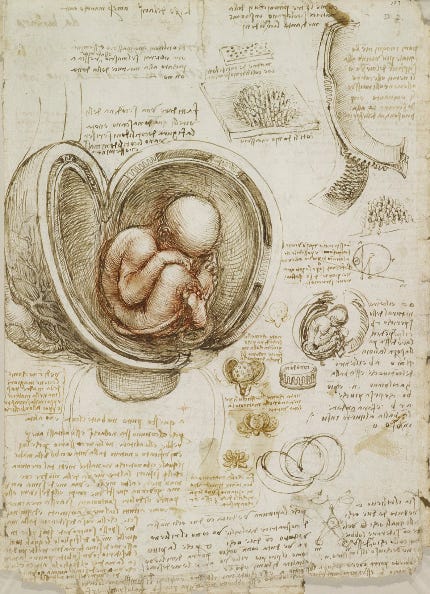
The Hebrew and Arabic words for mercy share the same root as the Hebrew and Arabic words for womb. Think of all the times we forgive our children for the ways they hurt us; think of all the times our mothers forgave us. Times that by a million, and you barely get to the way G-d forgives us.
Pastor Scott notes that we don’t have the aggrieved or the victim preside over legal proceedings as judge and judicator. That’s food for thought, reader. To judge a case requires impartiality. The victim lacks the capacity to judge his abuser with fairness. That’s an important point to consider when thinking about our duty to forgive those who wrong us. This poses a great challenge to us when we journey through the process of forgiveness.
How do we face forgiveness? Can I bless them? Can I bring them joy? Can I facilitate peace for them? Can I wish for their happiness? If I cannot perhaps I need to seek G-d’s guidance to forgive. What resistance do we experience when we face forgiveness of those who’ve hurt us?
What would happen when we renounce our claim to judge our wrongdoers? How often do we have to cycle through this process?
What does forgiveness entail? It doesn’t mean we don’t set limits, or that we have endorsed their behaviour. It doesn’t mean that we return to the relationship as we previous experienced it. Maybe we don’t resume the relationship with the wrongdoer. Forgiveness happens within and for us.
I often see the statement of assurance made to trauma survivors by trauma influencers, “you don’t have to forgive to heal.” Reader, I call bullsh1t. What does healing mean, if not to release ourselves from the shackles of the wrongdoing of others? What healing can we have when we force ourselves to carry the weight of the baggage of our abusers? Why do influencers want trauma survivors to carry the hurt around like a talisman? What purpose does that serve?
A traumatised or hurting person not needing to forgive sounds as logical as a wound not needing to slough its scab in order to heal. Hurts and offenses that we hang onto become like the emotional equivalent of eschar, dead scabby skin from a full thickness wound. Necrotic tissue impedes healing, slows granulation in the wound bed. For wound bed to heal we need to remove the necrotic tissue. In order for our hurts to heal, we need to forgive those who inflicted those hurts.
“Scab: a collection of dried blood cells, platelets, and serum on top of the skin surface. Wound healing occurs beneath the scab.” — Physiopedia
In wound care we call the crusted over tissue comprised of dried blood cells, platelets, and other exudate a scab. Reader, a scab is a collection of old tissue that has formed over the fresh wound to protect it from infection and further injury whilst the new tissue regenerates. As Cleveland Clinic writes, the wound's first form of defense against invaders. It's also hard like a shield. When your body no longer needs the scab, it will slough off that scab. Scabs that don’t slough off when no longer needed prevent healing — no new tissue cannot grow from a scab. The new growth happens under the scab. Scabs lack the flexibility of skin because of their composition and structure.
Consider wound care, reader. Below you can see a two diagrams depicting the stages of pressure sores. The image with the dark tissue depicts eschar, it’s a late stage wound, it’s denoted as unstageable.
What if healing from emotional hurts involves the same process of crust formation and sloughing off and regeneration? Why do we feel so inclined to hang onto our scabs like they’re sacred talismen? Our emotional scabs choke off new life when we hang onto them beyond their expiration date. Scabs mean we have hope of healing the wound. Healing involves letting go. What if we thought of a refractory experience of forgiveness, that is an enduring inability to forgive the abuses and hurts of another, as a kind of emotional eschar? Eschar means we have tissue death. Eschar is that leathery crust that forms from a full thickness wound. It means the skin has died in that area.
Do you want to live in death? Or do you want to live in life? At some point we must surrender, and crawl out of our wound. We must shake the dust from our feet and decide how we want to live, and decide what we wish to govern our life. When we refuse to forgive, aren’t we living enslaved to the one who’s harmed or hurt or abused us? Why would you want that?



